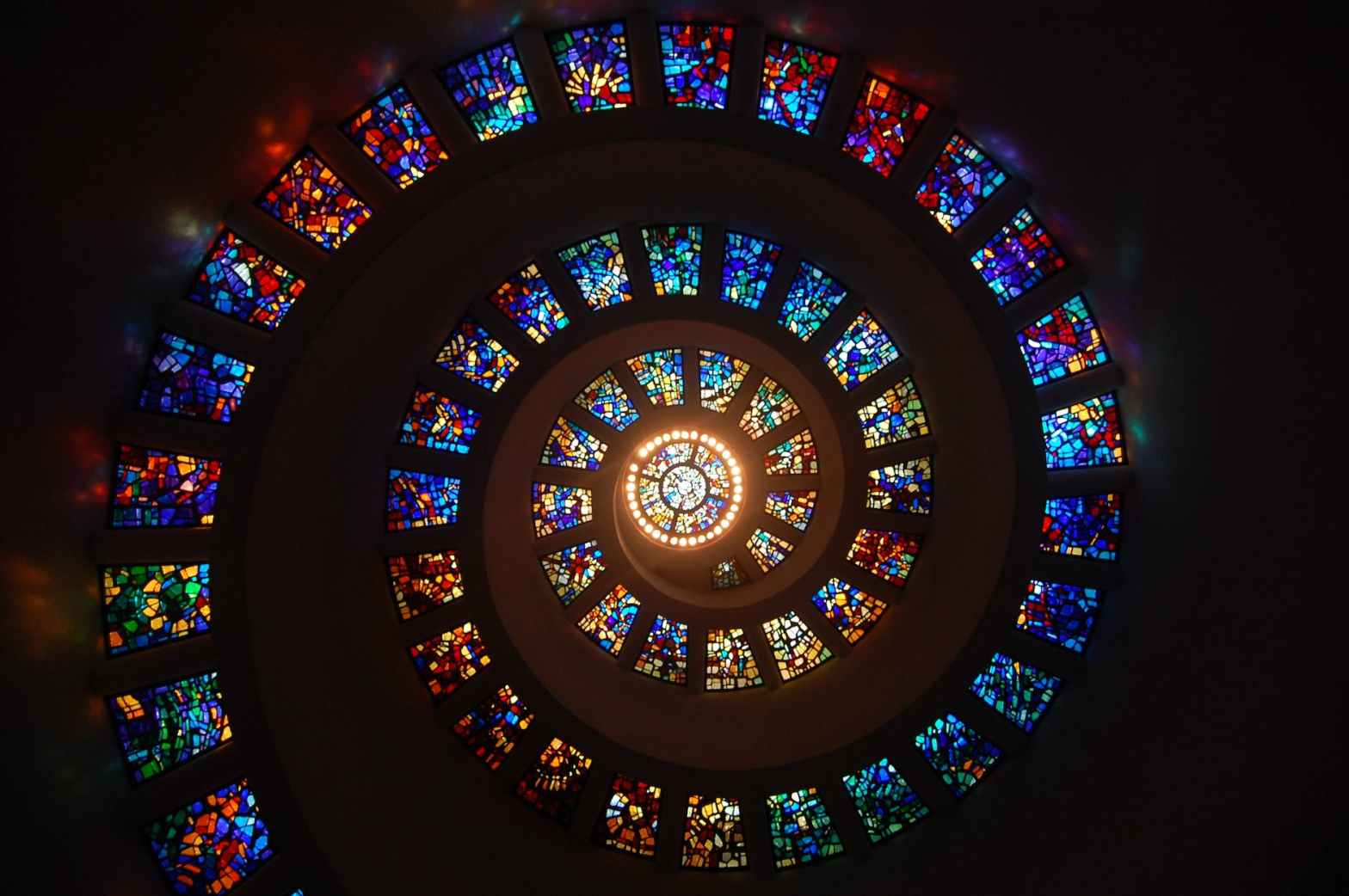
Welcome to Radio Quotidia, episode 14. This month’s theme Lost and Found, 13 minutes or so of music and musings. Quentin Bega here at the mic. I’m broadcasting from our studio in the depths of Quotidia inside a digital onion. My aim to keep you entertained for a while.
On Easter Saturday last year, I was alone in my room, staring at my computer where the cursor was blinking on the blank page in front of me. Hoping for inspiration and it finally arrived as just one word. Meanwhile. That was it. Just that one word. I was able to pull together lyrics to a chord sequence I had already written. I reflected on the fact that we (and I do include myself here) are fickle consumers of news in the West.
Was Ukraine the only instance of horror operating in the world? Of course not. Horror manifests its depredations elsewhere today, from Myanmar to Yemen to sub-Saharan Africa to Latin America, to the Middle East. And horror does not neglect the quotidian world either as it drills down into the cosy and supposedly safe domain of the domestic realm to spread misery. I read and collect poems from the site Poem-a-Day.
One of these, by Palestinian poet, Mosab Abu Toha, stopped me in my tracks, because the decades-long agony of his people has not yet been resolved but was driven from my mind by the foregrounding of what was happening in eastern Europe. Mosab Abu Toha is the founder of the Edward Said Library, Gaza’s only English-language library. Here is his poem, Mouth Still Open, Someone’s mouth is still open. He hadn’t finished yawning when shrapnel pierced through his chest, stung his heart. No wind could stop the flying pieces of shrapnel. Even the sparrow on the lemon tree nearby wondered how they could move with no wings.
The song I have written for this episode is focused on what is happening from the TV coverage of events in Ukraine. 21 months on from the writing of the song and what has changed? Here is Meanwhile, still, alas, relevant. [insert song]
The Parting Glass is a traditional song, often sung at the end of a gathering of friends. It has long been sung in Ireland, enjoying considerable popularity to this day. The earliest known printed version was as a Scottish broadside in the 1770s. However, it was known at least as early as 1605 as a poem- Armstrong’s Goodnight, by one of the Border Reivers executed that year for the murder in 1600 of Sir John Carmichael.
The overlay of mortal sadness, of one facing execution, has seeped into the melody. and I am reminded of that amazing poem by the 24-year-old Chidiock Tichbourne who was executed by being hung, drawn, and quartered for his role in the Catholic Babington plot to assassinate Elizabeth I in 1586. He sent this moving examination of life and death to his wife on the night before his execution:
My prime of youth is but a froste of cares,/My feaste of joy, is but a dishe of payne,/My cropp of corne, is but a field of tares:/And all my good is but vaine hope of gaine:/The daye is gone, and yet I sawe no sonn:/And nowe I live, and nowe my life is donn.//The springe is past, and yet it hath not sprong/The frute is deade, and yet the leaves are greene/My youth is gone, and yet I am but Yonge/I sawe the woorld, and yet I was not seene/My threed is cutt, and yet it was not sponn/And nowe I lyve, and nowe my life is donn.//I saught my death, and founde it in my wombe/I lookte for life, and sawe it was a shade./I trode the earth and knewe it was my Tombe/And nowe I die, and nowe I am but made/The glasse is full, and nowe the glass is run/And nowe I live, and nowe my life is donn. [insert song] Next week, our final Radio Quotidia program of the year, will feature two songs that are rather more up-lifting than today’s offerings, more in keeping with the festive season! [insert song]
Credits: All written text, song lyrics and music (including background music) written and composed by Quentin Bega unless otherwise specified in the credits section after individual posts. Illustrative excerpts from other texts identified clearly within each podcast. I donate to and use Wikipedia frequently as one of the saner sources of information on the web.
Technical Stuff: Microphone- Shure SM58; (for the podcast spoken content) Audio Technica AT 2020 front-facing with pop filter); Apogee 76K also used for songs and spoken text. For recording and mixing down: 64-bit N-Track Studio 10 Extended used; Rubix 22 also used for mixing of microphone(s) and instruments. I use the Band in a Box/RealBand 2023 combo for music composition.


